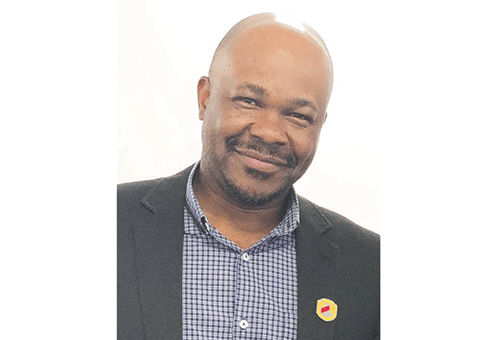A hoax is a falsehood consciously or unconsciously fabricated to hide the truth. Basing decisions on hoaxes can lead to errors in observation or judgement. Hoaxes are like lies told too often and for so long that they sound believable. They can lead to wrong beliefs or ideas. The peddling of hoaxes are part and parcel of every society or social system, but they can be dangerous too. That is why they deserve to be busted. In this article, I present some social and academic hoaxes concerning land in Namibia, drawing on my recent experience with our people in barbershops, drinking bars and social circles. I examine five widely- held beliefs that I have observed which are holding citizens back from enjoying the opportunities posed by land ownership in Namibia.
The land hoaxes explained
Hoax-1 (Namibia is a small country because it has a population of less than three million people)
Namibia is huge. Namibia is a land of more than 825 000 square km. From a land management lens, Namibia’s low population with a massive land size should be an advantage (not a disadvantage). It potentially can lead to more resources for the lower population size.
Hoax-2 (Men are a problem to women’s access to land)
It is an unarguable fact that women are disadvantaged in many aspects of societal development, including empowerment through land access and ownership. It is also a fact that women’s lack of access to land is primarily a consequence of patriarchy (a system of male domination). However, many women support patriarchal rules and engage in attitudes and actions that impede or deny fellow women access to land. While the impact of this anti-women mindset in the land sector does not have a significant impact on women’s access when compared to the evils of patriarchy, it is worth checking before it grows.
Hoax-3 (Namibia is a country with full freedom in land ownership)
This is the biggest land hoax in Namibia. A substantial size of Namibia’s land is nationalised. Land nationalisation implies eliminating private ownership of land and the transfer of the land to State ownership. Nearly 40% of the land in Namibia is designated communal land. This means that Namibia operates a nationalised land system at the communal level. According to our legislation (Communal Land Reform Act), Namibia’s communal land belongs to the State. It is held in trust by chiefs to benefit the traditional communities living in those areas. It is expected that communal land cannot be bought or sold. Still, you can be given a customary land right or right of leasehold to a part of communal land, according to the rules outlined in the Communal Land Reform Act.
Hoax-4 (Namibia prohibits dual nationality)
This is another big hoax, with big implications on land ownership in Namibia. It is true that the Namibian Citizenship Act of 1990 (section 26) prohibits dual citizenship. However, the High Court has held that section 26 may not be constitutionally applied to Namibian citizens by birth or descent (refer to the cases Thloro versus Minister of Home Affairs of 2008 and Le Roux versus Minister of Home Affairs and Immigration & Others of 2011. According to information posted on the official website of the Namibian embassy in Washington DC: “Upon the proper interpretation of the Namibian Constitution as seen in the two cited cases, it is clear that dual citizenship is allowed in two circumstances. Namibian citizens who are citizens only by birth or descent may hold dual citizenship if the laws of the other country allow such dual citizenship.” The implications of this is that a section of privileged Namibians who are citizens “by birth or descent” hold dual citizenships from South Africa and Australia (and countries from Europe and North America). They buy and inherit land in Namibia, and live abroad while enjoying the revenues from Namibia. On the contrary, the normal Namibian is made to believe that they must be rooted squarely in Namibia to have legitimate access to Namibian land.
Hoax-5 (Namibians are now empowered with land ownership because apartheid-era situations are over)
This hoax is one of the dishonest ones I have encountered on land issues in Namibia. Some of the apartheid-era land-related laws are still here with us. For instance, spatial planning regulations (such as the Windhoek Town Planning Scheme of 1954 and Township and Division of Land Ordinances No. 11 of 1963) still influence land use in Windhoek today. The city of Windhoek is still highly colourised. It still operates along racial and ethnic lines. Now you know why we have downgraded from providing low-cost to ultra-low-cost houses for our people. Imagine that we now categorise our people as ultra-low. That is as bad as planning gets. We now strip people of their dignity and humanity in the name of urban planning. I think the more we decolonise these laws, the better. Most blacks still live in Katutura along ethnic lines. The racial walls that stopped black Namibians from living in Windhoek have been replaced with financial barriers that force black Namibians into informal settlements. Guess who controls the economy or the finance? Thirty-two years after independence, it is a mystery for a Namibian to fully own a property in the Central Business District of Windhoek. In Namibia, political power has not translated into economic power.
*Uchendu Eugene Chigbu is an Associate Professor (Land Administration) in the Department of Land and Property Sciences (DLPS) at the Namibia University of Science and Technology (NUST). The views expressed in this article are entirely his, and not that of NUST.


